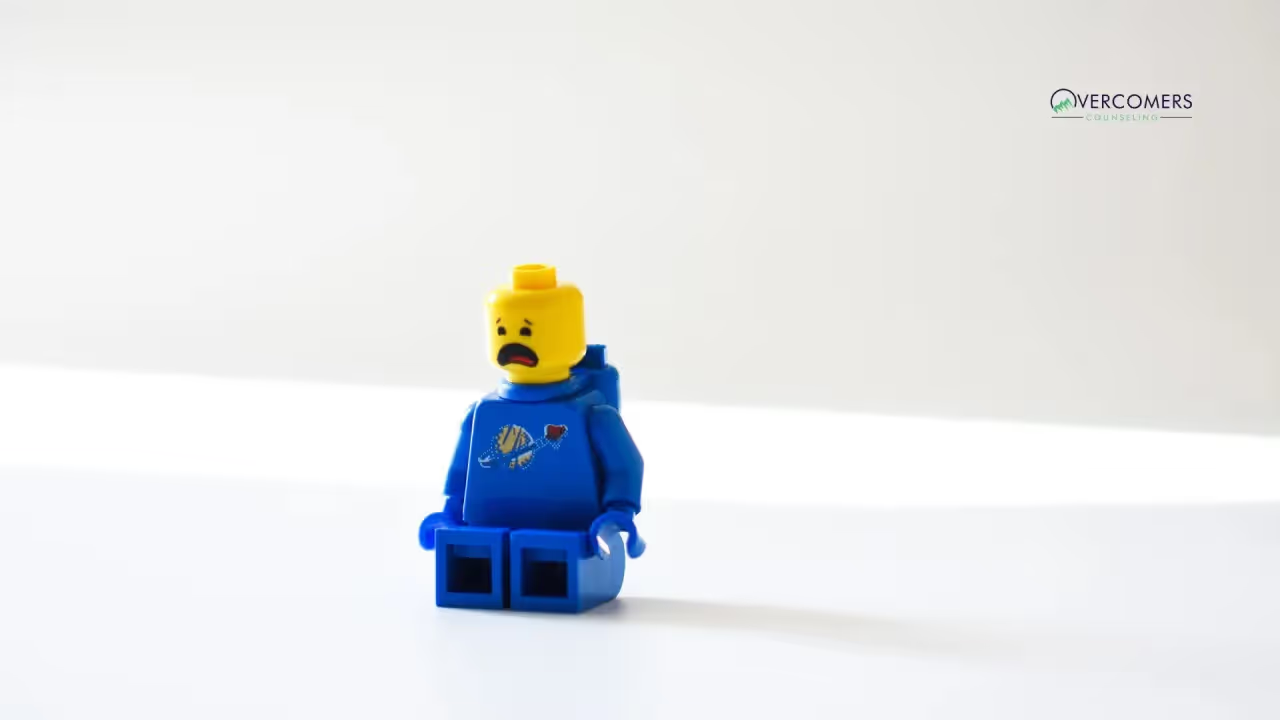How many times have you found yourself with a pit in your stomach, feeling everyone in your body telling you to run as fast as you can in the opposite...

How many times have you found yourself with a pit in your stomach, feeling everyone in your body telling you to run as fast as you can in the opposite direction?
Okay, maybe that's a little much, but I'm sure you have felt something tug at you to not do something.
Maybe it was going to a party at a friend's house or having to confront someone you know, or maybe just wanting to avoid an interaction with someone you don't know very well.
We have all experienced resistance in areas of our life, resistance in the form of anxiety.
Sometimes the answer seems obvious why we want to avoid a certain person, place, or thing, but I bet if you stopped and really thought about it, you may not think it's so straightforward.
For instance, let us say that you are getting a little anxious about going to a friend's get-together.
You know most of the people going, you have gone to these sorts of things before (at this friend's house in fact) and nothing bad has ever happened before.
So, why are you anxious?
Some might say, "groups make me nervous" or "I don't like small talk."
While other people may say there will be 1 or 2 people there that they do not like.
But, are these really the answer to why you are feeling anxious?
Aren't those groups of people at the grocery store, mall, restaurant, Target, and, well, everywhere?
As for small talk, it's literally called "small" so are you actually anxious about a couple of small moments?
After all, you know most of the people that are doing the "small talk" will be limited anyway which also knocks out the 1 or 2 people you don't like.
So, why the anxiety, really?
Most people don't take it past the initial answer, and therefore never really get to the root of the issue.
Luckily, today we are doing just that.
We are going to explore how to take those next steps to really know your anxiety.
To know your anxiety it is always a good idea to know the concept of what anxiety is.
Anxiety is more than just a nervous feeling.
It is an alarm system warning you that there is a potential threat and that it would be better to just stay away.
This was a very handy warning system to our ancestors who felt like it was maybe not a great idea to go waltzing into a dark cave alone.
But, for the most part, we live in an unbelievably safe environment now.
This is why it is so important to know how to unravel your anxiety.
It is limiting your enjoyment of life by unnecessarily blocking you from experiences that aren't dangerous to you in the slightest.
Let's look back at the example above, the get-together at your friend's house.
The brain does not like to feel ridiculous so it creates (ridiculous) and immediate reasons for our emotional state.
We feel anxious, the brain wants a reason, and boom there you go, "I'm not good at small talk."
It's a quick answer that makes enough sense not to have to think about it further, but it is also the wrong answer.
The right answer is more like this; "there isn't a reason at all, part of me is worried that if I go and then something unpleasant will happen that will threaten my sense of self."
But that answer is not nearly as easy to defend and nowhere near as neatly packaged, it just happens to be true.
But don't take my word for it, discover for yourself, and get to know your anxiety!
Okay, getting to know your anxiety may be a little trickier than it seems.
To begin you need to recognize that you are in fact anxious.
So here are common signs that you are, or are becoming anxious.
These are the most common symptoms of anxiety but can be tough to recognize when you are in the middle of feeling it because your mind is busy worrying about, whatever it is worrying about.
But, once you recognize that you are anxious, it is time to get to know your anxiety.
Start by calming yourself down.
You can do this by taking slow deep breaths with long exhales, or by doing what is called the Physiological Sigh.
2 sharp inhales followed by a long exhale repeated for 30-60 seconds will calm your nervous system down and help you think clearly.
Once you have calmed down it is time to investigate, to become an inuring observer about your own experience.
This means taking yourself, and your response to the question "why" seriously, like really seriously.
The first answer that comes to mind is not going to be the real answer.
You have to keep digging.
To help this process I would recommend sitting down with a pen and paper (or journal) and writing down your process to figuring this out.
If your immediate answer is like the examples given above keep probing.
What does small talk have to do with being anxious?
What is it about those 1 or 2 people there you don't like?
What makes you nervous about being around groups of people?
This will likely take some practice before you really feel comfortable being raw and real with yourself.
The answer you come to at the bottom of it all might be embarrassing to admit.
That's really when you know you've hit it.
Our mind will do everything in its power to avoid embarrassment because embarrassment is an indicator that we are flawed.
The ego does not like to admit it has flaws.
The other thing that may happen is you discover there is truly nothing at all to be anxious about, and that realization may honestly be enough to remove that anxiety entirely.
But it only happens if you are willing to be vulnerable with yourself, honest as you can be in getting to know your anxiety.

That's it.
No flashy tricks or mind games that you might find on TikTok or social media.
No magical spells or special drinks, no getting up at 4 AM and taking a cold plunge (although that might help other areas of life).
Just plain, old-fashioned, investigation and getting to know your anxiety.
To recap:
As I said, this will take some practice as most of us are not naturally interested in understanding ourselves.
Which is a shame, because once you become interested in understanding yourself, you'll realize just how important you really are.
Other activities which have been found helpful in reducing both immediate feelings of anxiousness and long-term anxieties associated with chronic disorders include yoga, journaling, nature walks, art therapy, volunteering, and other low-stress activities. Additionally, developing a healthy lifestyle incorporating adequate sleep, physical activity, and nutritious meals can help reduce overall stress levels.
It's important that you feel comfortable discussing personal matters with your therapist in order to open up and get more out of therapy sessions; therefore finding someone who meets certain criteria like experience level, expertise areas, and personality is key when selecting a therapist who can give meaningful feedback about how best handle issues related to anxiety or other mental health concerns.
The duration of anxiety counseling varies for each individual, depending on the severity of their anxiety and their progress in therapy. Our therapists will regularly assess your progress and adjust your treatment plan as needed.
To reduce your anxiety, you can practice relaxation techniques such as deep breathing, progressive muscle relaxation, guided imagery, and mindfulness practices. Additionally, regular exercise has been found to be beneficial in managing stress and improving mental health.
Ignoring anxiety can exacerbate symptoms and make it more challenging to manage over time. This can result in a negative impact on your personal, professional, and social life, leading to feelings of isolation and even depression.
Addressing anxiety is crucial because it can significantly impact your quality of life and overall well-being. Left untreated, anxiety can lead to more severe mental health issues, relationship problems, and difficulty functioning in daily life.